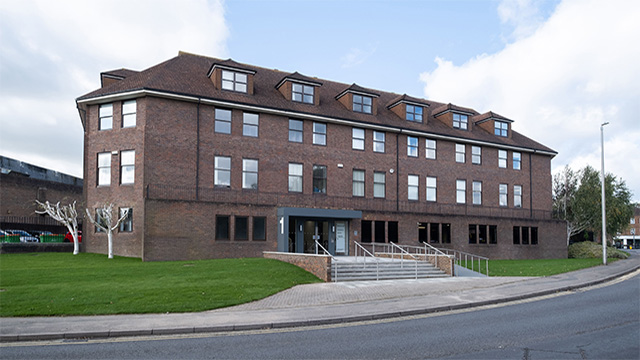Sirius prepares for corporate debt deals
Sirius Real Estate, the FTSE 250 property investor, is eyeing new debt issuances after securing an investment-grade credit rating.
“Strategically, the biggest thing for us in the future is moving to substantial corporate debt,” said chief executive Andrew Coombs. “We’ve already got €50m (£43m) of unsecured debt in the form of German Schuldschein [borrowing], but the next strategic move is to get more than 50% of our lending onto corporate debt, and the investment-grade rating is going to be one of the tools in our toolkit that we will need for that.”
The move will allow Sirius to recycle properties more quickly, without discussions with lending banks, Coombs said, as well as lowering the company’s cost of debt. Sirius was given an investment-grade rating of BBB by ratings agency Fitch last month.
Sirius Real Estate, the FTSE 250 property investor, is eyeing new debt issuances after securing an investment-grade credit rating.
“Strategically, the biggest thing for us in the future is moving to substantial corporate debt,” said chief executive Andrew Coombs. “We’ve already got €50m (£43m) of unsecured debt in the form of German Schuldschein [borrowing], but the next strategic move is to get more than 50% of our lending onto corporate debt, and the investment-grade rating is going to be one of the tools in our toolkit that we will need for that.”
The move will allow Sirius to recycle properties more quickly, without discussions with lending banks, Coombs said, as well as lowering the company’s cost of debt. Sirius was given an investment-grade rating of BBB by ratings agency Fitch last month.
The company, which invests in industrial parks in Germany, is back on the acquisition trail, recently wrapping up five acquisitions on its own balance sheet for €45.9m, as well as striking a €79.9m purchase through its Titanium joint venture with AXA IM Alts.
Coombs said the company has identified a “strong pipeline” of deals for the months ahead, adding that it will now focus on acquisitions for its own balance sheet rather than those for the AXA joint venture.
Coombs spoke with EG as Sirius announced results for the year to 31 March. Pretax profit of €163.7m was up by almost 48% year-on-year, largely driven by valuation gains in the portfolio, up 11.5% to €1.3bn. NAV per share increased by 14.2% to €0.88.
A total shareholder return of 19.5% is above the company’s seven-year average of 16.2%. “I’ve been banging on for years now about the challenge for Sirius [of delivering] double-digit returns all the way through the cycle,” Coombs said. “People have been saying, ‘That’s not practical – when you get bigger it’s going to go down, and when a downturn hits the economy then you’re really going to come down.’
“But for me, that’s a real ambition, to be able to set this business up for a long time to come in terms of investors understanding it’s not a cyclical business. The business model is there to be able to generate consistent double-digit returns.”
The company’s annualised rent roll rose by 7.6% to €97.2m, with occupancy edging up from 85.3% a year ago to 87%. Enquiries were up by 18.5%, with the sharpest monthly rise of 48% coming in March.
Sirius’s marketing team tracks search engine queries as part of a measure of occupier sentiment. Coombs said a clear shift is happening as lockdowns lift.
“We’re seeing aspiration come back in,” he said. “What we saw at the beginning of the pandemic was people park their ambitions and try to mitigate the risk – defensive behaviour. What you have started to see in the past six weeks specifically is more aspirational terms being used – ‘Can I expand? What happens if I need more conference space?’
“You can see questioning now that is reflecting the ambition of the future, whereas previously what you saw was fear. The language has changed.”
To send feedback, e-mail tim.burke@eg.co.uk or tweet @_tim_burke or @EGPropertyNews











